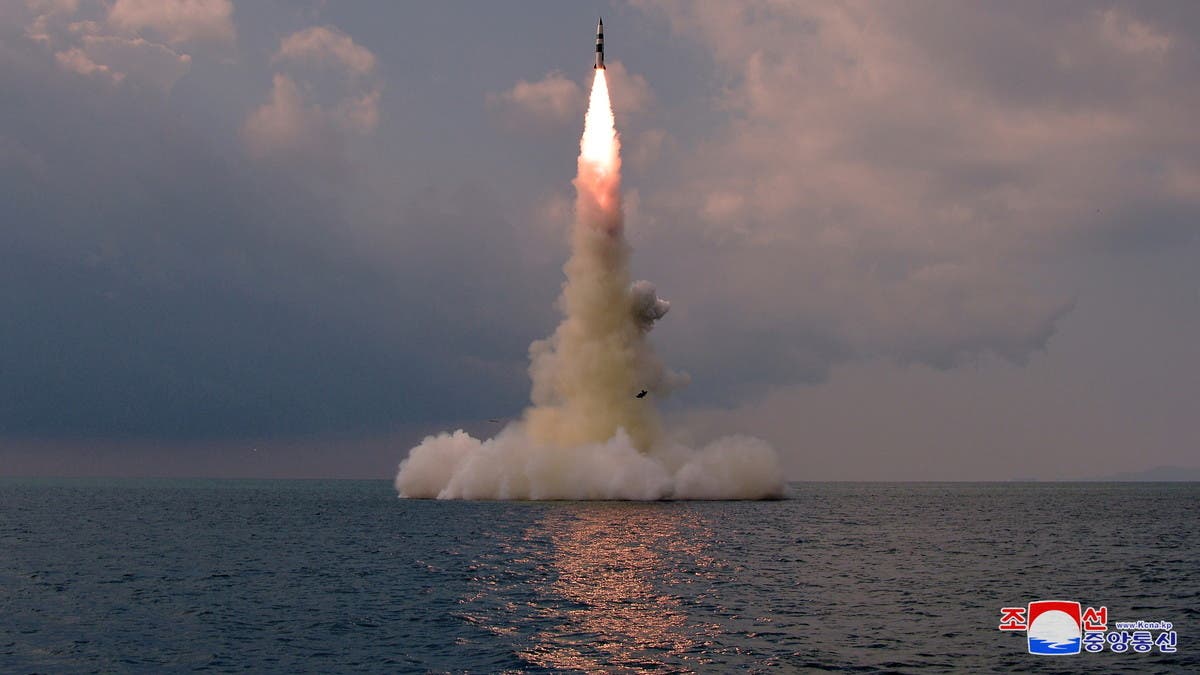North Korea fired a suspected ballistic missile off its east coast on Wednesday, underscoring leader Kim Jong Un’s New Year vow to bolster the military to counter an unstable international situation.
Japan’s coast guard, which first reported the launch, said it could be a ballistic missile, while the country’s defense minister later said it had flown about 500 kilometer (310 miles).
For all the latest headlines follow our Google News channel online or via the app.
“Since last year, North Korea has repeatedly launched missiles, which is very regrettable,” Japanese Prime Minister Fumio Kishida told reporters.
South Korea’s Joint Chiefs of Staff also reported that nuclear-armed North Korea fired a presumed ballistic missile from an inland location toward the sea.
“Our military is maintaining readiness posture in preparation for a possible additional launch while closely monitoring the situation in close cooperation with the US,” the JCS said in a statement. Recent North Korean missile tests have often featured double or multiple launches.
South Korea’s National Security Council convened an emergency meeting, expressing concern that the launch “came at a time when internal and external stability is extremely important” and calling on North Korea to return to talks.
United Nations Security Council resolutions ban all ballistic missile and nuclear tests by North Korea, and have imposed sanctions over the programs.
In state media summaries of a speech Kim gave ahead of the New Year, the North Korean leader did not specifically mention missiles or nuclear weapons, but said that national defense must be bolstered.
For several weeks North Korean troops have been conducting winter exercises, South Korean military officials have said.
Since the start of the COVID-19 pandemic, North Korea has become even more isolated, imposing border lockdowns that have slowed trade to a trickle and choking off any in-person diplomatic engagements.
It has also stuck to a self-imposed moratorium on testing its largest intercontinental ballistic missiles (ICBMs) or nuclear weapons. The last tests of ICBMs or a nuclear bomb were in 2017, before Kim launched a diplomatic overture to the US and South Korea that has since stalled.
But Pyongyang has continued test firing new, short-range ballistic missiles, including one launched from a submarine in October, arguing it should not be penalized for developing weapons that other countries also wield.
“While the readout from North Korea’s recent plenary meetings may have prioritized rural development for the coming year, it doesn’t mean the country will halt its ballistic missile tests,” said Michelle Kae, deputy director of 38 North, a North Korea monitoring program at Washington’s Stimson Center.
MISSILE DEVELOPMENT
Just hours after the North Korean launch, Japan announced its foreign and defense ministers will hold talks with their US counterparts in a “two-plus-two” format on Friday to discuss security issues.
The White House, Pentagon and US State Department did not immediately respond to requests for comment on Wednesday’s launch. At a regular news briefing on Monday, State Department spokesperson Ned Price reiterated the US desire for dialog with North Korea. He repeated that Washington had no hostile intent towards North Korea and was prepared to meet without preconditions.
Price declined to comment on Kim’s slimmer appearance in a photo published recently in North Korean state media and on speculation about his health, saying “we don’t want to add to that speculation.”
For the first time in his 10 years of rule, Kim did not publicly appear at any missile tests or military drills last year, according to an analysis https://www.nknews.org/2021/12/kim-jong-un-skips-full-year-of-military-drills-and-missile-tests-for-first-time by NK News, a Seoul-based website that monitors North Korea. Health issues or efforts to minimize attention may have played a role in his official absences, the site said.
Kim’s latest speech made no mention of efforts by South Korea to restart stalled negotiations or offers by the
US to talk, casting doubts on South Korean President Moon Jae-in’s push to achieve a breakthrough before his term ends in May.
North Korea continues to advance its nuclear weapons and missile programs despite United Nations Security Council sanctions and high-level diplomatic efforts, the US government’s Congressional Research Service concluded in a report last month.
“Recent ballistic missile tests and military parades suggest that North Korea is continuing to build a nuclear warfighting capability designed to evade regional ballistic missile defenses,” the report said.
Read more:
North Korea weapons test used submarine-launched ballistic missile: Report

 World3 years ago
World3 years ago
 World3 years ago
World3 years ago
 Business1 year ago
Business1 year ago
 Entertainment7 years ago
Entertainment7 years ago
 World7 years ago
World7 years ago
 Entertainment7 years ago
Entertainment7 years ago






